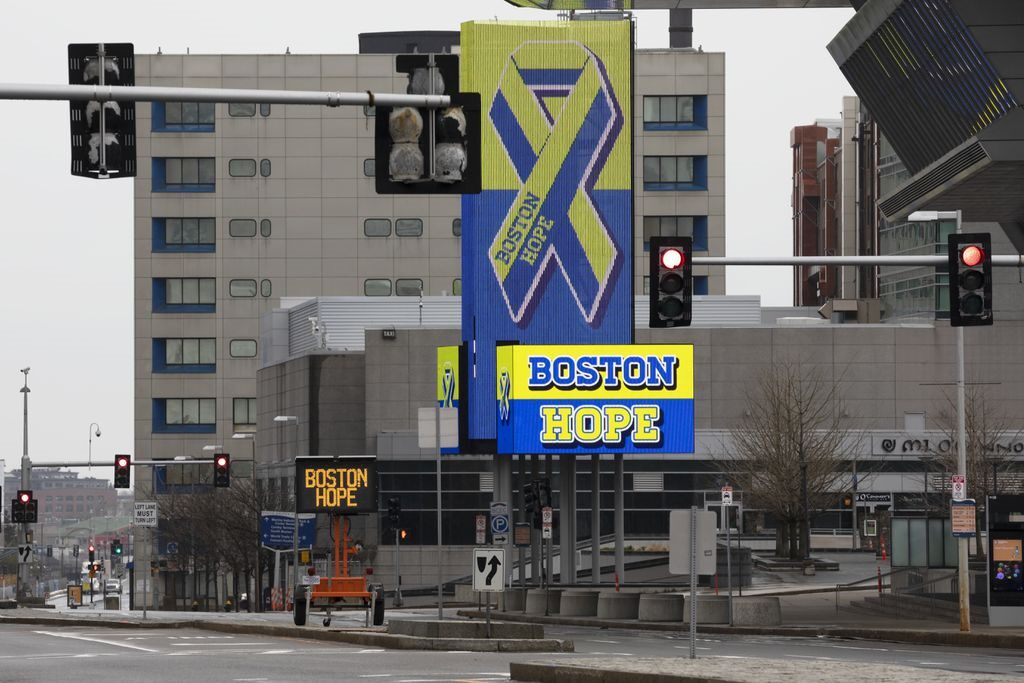Kevin Tabb, MD (President & CEO, BILH) discusses the partnerships and cooperation between the Boston-area hospitals in addressing the COVID-19 pandemic.
Pandemic spawns new spirit of collaboration for Boston’s longtime rival hospitals
WBZ – May 8,Boston Globe – May 12, 2020

It’s not ‘Kumbaya,’ just ‘Let’s put the community first,’ an executive says
During normal times, Boston’s big hospitals compete for doctors, patients, revenues, and prestige.
But the pandemic has spawned a new spirit of cooperation among these longtime rivals. Hospitals have been sharing supplies, equipment, data, and even staff as they scramble to treat patients sick with COVID-19, the disease caused by the coronavirus.
Several weeks ago, when Boston Medical Center was flooded with patients needing intensive care and doctors there were worried about running out of ventilators, other hospitals took 10 of BMC’s patients. Boston Children’s Hospital, Beth Israel Deaconess Medical Center, and Boston’s VA Medical Center sent ventilators.
On another day, BMC sent masks to Boston Hope, the temporary hospital set up by Partners HealthCare, when that facility was running low.
“We have a great mutual aid society,” BMC chief executive Kate Walsh said. “We learn from each other. We keep each other up to date on some of the challenges we face.”
“That’s a really important and a really powerful thing that came out of this pandemic,” she added, “and I believe that will persist.”
The pandemic has challenged hospitals like never before. Massachusetts hospitals were not overwhelmed by a surge in patients, thanks in part to the fact they had worked to expand capacity. But they continue to treat thousands of people seriously ill from the virus while most other medical services remain on hold.
As they navigate the crisis, hospital leaders are talking to each other more than ever, they say, including on a daily call with Governor Charlie Baker. The Massachusetts Health & Hospital Association also holds three calls per week with hospital CEOs, usually at 7 a.m.
The governor — the former CEO of a health insurance company — noted the unusual circumstances at a press briefing in late April and credited the hospitals for their collaboration.
“Having been involved in the health care world for much of my professional career, I can tell you that these hospitals and these organizations are typically, well, pretty competitive with one another,” Baker said. “It’s been remarkable to see them work together.”
That day, six Boston teaching hospitals jointly launched a public service announcement encouraging people with medical emergencies to seek care at an emergency department, and not delay until their condition worsens.
More recently, hospitals have been planning how to share supplies of remdesivir, a drug being used to treat COVID-19, after some hospitals in the state received hundreds of doses from the federal government and others received none.
Medical staff from different health systems are also working together to treat patients with COVID-19. Partners, the parent company of Massachusetts General and Brigham and Women’s hospitals, set up the Boston Hope field hospital at the Boston Convention & Exhibition Center. But doctors and nurses working there are also from Beth Israel Lahey Health and the physician network Atrius Health — both rivals of Partners.
Blue Cross Blue Shield of Massachusetts, the state’s largest health insurer, also sent nurses to work at the field hospital.
The cooperation between Partners and Beth Israel Lahey Health is particularly notable: The 2019 merger that created the Beth Israel Lahey system was meant to challenge Partners, the state’s dominant health care provider.
But for now, care providers from Mass. General and Beth Israel Deaconess Medical Center are working side by side to treat patients in hard-hit Chelsea, among other collaborations.
“We’re all talking to each other in a way that’s unprecedented,” said Dr. Kevin Tabb, chief executive of Beth Israel Lahey Health. “There is no sense of competition. I’ve never seen anything like it in my entire career.”
Peter Markell, chief financial officer at Partners, mostly agreed: “I’m not saying we’re in a ‘Kumbaya’ world, but it’s very much ‘Let’s put the community first.’ Then we’ll go back to doing business afterwards.”
Indeed, the cooperative spirit may end up being short-lived.
“I think ultimately that whole competitive thing is going to come back,” Markell said.

